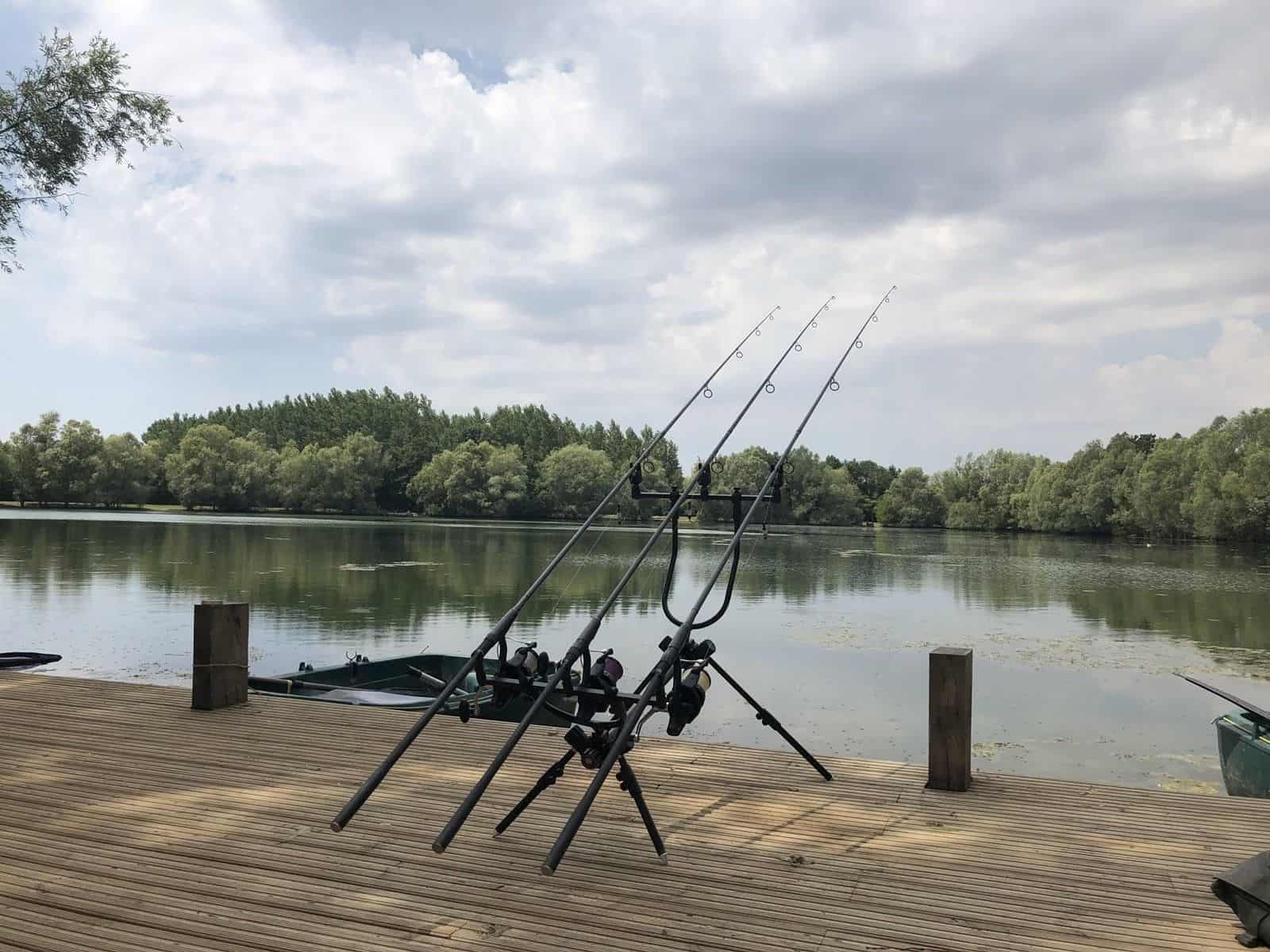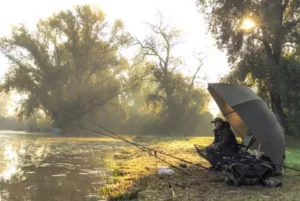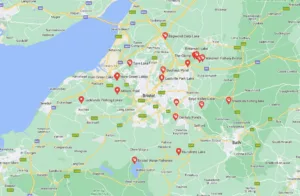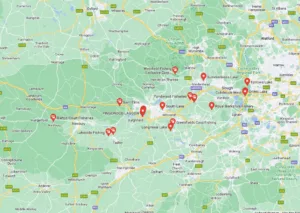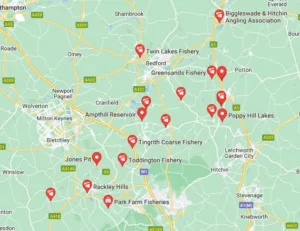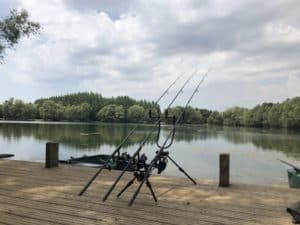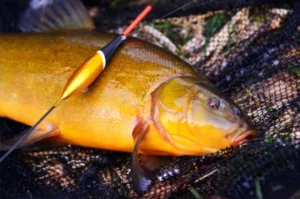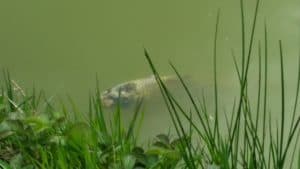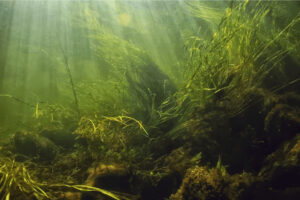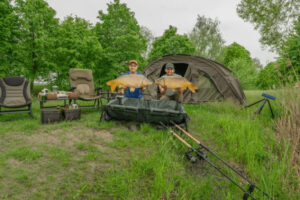In the UK, there are four main types of fisheries: commercial fisheries aka day ticket fisheries, fishing clubs, free fishing lakes, and syndicate lakes. In this blog post, we’ll give you a brief overview of each type of fishery and its respective pros and cons. Ultimately, it will be up to you to decide which type of fishery best suits your needs.
Fisheries in Summary
- Commercial fisheries (day ticket fisheries) are purpose-built for anglers and usually have everything an angler needs on-site, including a shop, cafe, toilets, and parking. However, they can be quite busy during peak times.
- Fishing clubs are run by volunteers on a not-for-profit basis and usually require an annual subscription fee. They often have a variety of lakes to fish in and fewer restrictions than commercial fisheries.
- Free fishing venues are few and far between but some local councils have free community waters available to the public.
- A syndicate fishing lake is a private lake that is only accessible to members who have paid a subscription fee.
There are many different types of fishing locations, each with its own benefits and drawbacks. Commercial (day ticket) fisheries are often stocked with fish, making them a good option for those looking for a guaranteed catch. However, these waters can be crowded and expensive to fish.
For those looking for a more reliable fishing spot, club waters or syndicate fishing waters may be a better option.
These types of fishing spots often have strict membership requirements, but they also tend to be well-stocked and less crowded.
Finally, local fishing lakes can be a great option for those who want to explore different types of fishing. With so many options available, there is sure to be a fishing location that is perfect for everyone.
Fishery Types In Detail
Day Ticket Commercial Fisheries
Commercial fisheries (also known as day ticket fisheries) are often purpose-built for anglers, with everything an angler needs on-site, including a shop, cafe, toilets, and parking. This can be very convenient, but it also means that commercial fisheries can be quite busy during peak times. If you’re looking for a more peaceful fishing experience, you might want to consider a different type of fishery.
Day Ticket Fishery FAQs
A. Fisheries have different stocking schedules and water conditions can also fluctuate, meaning that the best time to fish can change from day to day. However, in general, the early morning and late evening are often considered to be the best times to fish as the fish are more active and less likely to be spooked by the presence of humans. Of course, this is not always the case and it is always worth checking with the fishery in advance to see what their advice is.
A. This will vary depending on the particular fishery, but in general, common species such as carp, roach, bream, and tench can be found in most day-ticket fisheries. Rarer or specialist fish such as catfish or pike may also be present in some cases. It is always worth checking with the fishery in advance to find out what types of fish are stocked.
A. This will depend on the type of fish you are targeting. In general, carp fishing requires heavier tackle than bream fishing, for example. As for bait, again, this will vary depending on the fish you are targeting. Common baits such as boilies, pellets, and ground bait are often effective, but it is always worth doing some research in advance or speaking to someone at the fishery to get some specific advice.
A. The size of fish that can be caught will vary depending on the particular fishery. In general, however, day ticket fisheries tend to stock fish that are of a good size and weight, so it is definitely possible to catch some decent-sized fish. Again, it is always worth checking with the fishery in advance to get an idea of the average size of fish that are being caught.
A. In general, the early morning and late evening are often considered to be the best times to fish as the fish are more active and less likely to be spooked by the presence of humans. Of course, this is not always the case and it is always worth checking with the fishery in advance to see what their advice is.
A. There are a few resources that can be useful for finding day ticket fisheries in your area. The website fisheryguide.co.uk has a comprehensive list of day ticket fisheries across the UK, while the Angling Trust also has a searchable database of fisheries on its website. Finally, your local tackle shop or angling club may also be able to provide you with some information on day ticket fisheries in your area.
A.The cost of a day ticket will vary depending on the particular fishery, but in general, you can expect to pay anywhere from £5 to £20 for a day ticket. Again, it is always worth checking with the fishery in advance to find out how much their day tickets cost.
A. Yes, there may be some special regulations in place at certain day ticket fisheries. For example, some fisheries may have a catch-and-release policy in place for certain fish, such as pike. It is always worth checking with the fishery in advance to find out if there are any special regulations that you need to be aware of. Be sure to make note of the fisheries rules before you start fishing.
A. This will depend on the particular fishery, but in general, you can expect to catch a variety of fish at day ticket fisheries. Carp and coarse fish such as bream, roach, and perch are usually the most common, but other fish such as trout, salmon, and eels may also be present in some cases. It is always worth checking with the fishery in advance to get an idea of what kind of fish are being caught.
A. There are a few essentials that you will need to bring with you when fishing at day ticket fisheries. Firstly, you will need a valid rod license, which can be obtained from post offices or online from the Environment Agency website. You will also need some tackle, sharp hooks, rigs, baits, a landing net, and unhooking mat. Finally, you will need to make sure that you have a valid day ticket for the fishery that you are visiting.
A. This will depend on the particular fishery, but in general, you should follow the same guidelines as you would at any other fishery. That is, you should carefully handle your fish, use a landing net and release the fish gently back into the water. In some cases, you may be required to return your catch to the fishery in order to help with their stocking program. Again, it is always worth checking with the fishery in advance to find out their requirements.
A. Here are a few general tips for fishing at day ticket fisheries:
– Always check the fishery website or call ahead to find out the cost of day tickets, as well as any special regulations that may be in place.
– Make sure you have all the essential tackle and equipment with you before you set off.
– Be prepared to pay a small fishing fee, some lakes only accept cash.
– Take care when handling your fish and release them back into the water carefully.
– Follow the fishery guidelines on catch and release if applicable.
– Have fun and enjoy your day!
Fishing Clubs
Fishing clubs are social organizations that revolve around fishing. In addition to providing a place to fish, most fishing clubs also offer a variety of other benefits such as access to exclusive lakes, discounts on tackle and bait, and organized competitions. Fishing clubs typically have lower densities of fish than commercial fisheries, but they tend to be much cheaper as a result.
Fishing clubs are a great way to enjoy the sport of fishing without having to deal with the crowds and high costs of commercial fisheries. These clubs are usually run by volunteers on a not-for-profit basis and typically require an annual subscription fee. In exchange for this fee, members usually have access to a variety of lakes with fewer restrictions than what is typically found at commercial fisheries. This can be a great way to enjoy the sport of fishing while also supporting a good cause. Plus, it’s a great way to meet other like-minded people who share your passion for fishing.
Fishing Club FAQs
A. Some of the benefits of joining a fishing club include:
– Access to exclusive fishing spots that are not open to the public
– Learning from experienced fishermen
– Discounts on gear and equipment
– Social events and outings with like-minded people
A. There are many different types of fishing clubs, each with its own focus or specialty. Some clubs may be geared towards fly fishing, while others may be more general in their approach. There are also saltwater and freshwater clubs, as well as those that focus on a specific type of fish
A. The best way to choose the right fishing club for you is to think about what type of fishing you want to do and what your goals are. If you want to learn more about fly fishing, for example, then a fly-fishing club would be a good choice. There are also clubs for different types of fishing, such as saltwater or freshwater, so you can choose one that matches your preferences.
A. In most cases, all you need to join a fishing club is an interest in fishing. Some clubs may have additional requirements, such as minimum age or level of experience. You may also need to purchase a membership fee.
A. In addition to the benefits mentioned above, joining a fishing club can also be a great way to meet new people and make friends who share your passion for fishing. It can also be a great way to get involved in your local community.
Free Fishing Venues
Free fishing venues are exactly what they sound like—places where you can go fishing for free! While the density of fish at free fishing venues can vary widely, one of the main advantages of these types of venues is that they provide anglers with an opportunity to try their hand at fishing without having to spend any money upfront.
Free fishing venues are few and far between but some local councils have free community waters available to the public. Community fishing waters are a great place to take the kids for a day out, get some fresh air, and learn how to fish. Fishing is a great way to relax and unwind, it’s also a renewable resource so it’s good for the environment. If you’ve never been fishing before, community fishing waters are a great place to start as there is usually someone on hand to give you some tips and advice. So, next time you’re looking for something to do on a weekend, why not head down to your local community fishing water and see what all the fuss is about?
Free Fishing Venue FAQS
A. There are a number of different types of free fishing venues. Some popular options include ponds, lakes, streams, rivers, and oceans. Each of these locations can offer its own unique challenges and rewards. Depending on where you live, certain types of free fishing venues may be more accessible than others. For example, if you live near a large body of water like an ocean or a lake, you may have more opportunities to fish for free than someone who lives in a rural area with few bodies of water nearby.
A.There are a few ways that you can find free fishing venues near you. One way is to look online for websites or forums that discuss fishing locations in your area. Another way is to ask around at local bait and tackle shops, as they will often have knowledge of where the best spots are. Finally, you can always try searching on your own by exploring local waterways. Whichever method you choose, make sure to do some research beforehand so that you can be sure to find a spot that is both free and productive.
A. When heading out to a free fishing venue, it is important to be prepared. Make sure to bring all of the necessary gear, including a rod, reel, line, hooks, and bait. It is also a good idea to pack some snacks and drinks, as well as sun protection and insect repellent. Finally, be sure to check the local regulations in advance so that you can be sure to stay within the law.
A. The best time of day to fish at a free fishing venue will vary depending on the specific location. In general, however, the early morning or late evening hours tend to be the best times to fish. This is when the water is typically the coolest and the fish are more active. Of course, it is always important to pay attention to the local conditions and adjust your fishing schedule accordingly.
A. Regulations for free fishing venues can vary depending on the specific location. In general, however, there are a few things that you will need to keep in mind. First, make sure to check the local regulations in advance so that you can be sure to stay within the law. Second, be sure to carry your license with you at all times when fishing. Finally, be sure to release any fish that you catch, as it is illegal to keep them.
A. There are a few things that you can do to make the most of your time at a free fishing venue. First, be sure to do some research beforehand so that you can find a productive spot. Second, bring all of the necessary gear and supplies so that you can be prepared for anything. Finally, be sure to pay attention to the local conditions and adjust your fishing schedule accordingly. By following these tips, you can be sure to have a successful and enjoyable time free fishing.
A. There are a few things that you can do to increase your chances of catching fish at a free fishing venue. First, be sure to use the right bait for the specific type of fish that you are trying to catch. Second, pay attention to the local conditions and adjust your fishing methods accordingly. Third, be patient and persistent, as fishing can sometimes be a waiting game. By following these tips, you can be sure to have a successful free fishing trip.
A. If you catch a fish at a free fishing venue, the first thing that you should do is check the local regulations to see if there are any size or creel limits in place. If not, then you can either keep the fish or release it back into the water. If you decide to keep the fish, be sure to clean it and cook it properly so that you can enjoy a delicious meal.
Syndicate Fishing Lakes
A syndicate fishing lake is a privately owned lake that is stocked with fish and managed by a group of people, known as the syndicate. The main benefit of fishing in a syndicate lake is that it offers a more reliable and productive fishing experience than other types of fisheries. This is because the syndicate members are able to agree on a management plan for the lake, which ensures that the water is well-stocked and maintained. Another benefit of syndicate fishing is that it often takes place in scenic and peaceful surroundings, away from the hustle and bustle of commercial fisheries. Syndicate lakes can be quite exclusive, with membership often requiring an upfront fee or an annual subscription. However, for those who are serious about fishing, syndicate lakes can offer an enjoyable and productive experience.
Syndicate Fishing Lakes FAQs
A. There are a few things to keep in mind when choosing a syndicate fishing lake. First, consider the type of fish you are hoping to catch. Some lakes are better stocked with certain types of fish than others. Second, think about your skill level and experience. If you are a beginner, you may want to choose a lake that has experienced anglers who can offer advice and help you get started. Finally, consider the cost of membership. Some syndicates are more expensive than others, so be sure to shop around to find the best deal.
A. There are a few things you can do to make the most out of your fishing experience at a free lake. First, be sure to bring the right gear. This includes things like a fishing rod, bait, and tackle. Second, familiarize yourself with the lake before you start fishing. This will help you know where the fish are likely to congregate. Finally, be patient and don’t expect to catch a fish every time you cast your line. Fishing is often more about enjoying the outdoors and spending time with friends or family than it is about catching fish.
A. There are many benefits to fishing in a syndicate lake, regardless of your skill level or experience. Syndicate lakes are typically well-stocked with fish, so you have a good chance of catching something. In addition, syndicate lakes often have experienced anglers who can offer advice and tips.
A. The best times to go syndicate fishing vary depending on the type of fish you are hoping to catch. In general, carp are most active in the spring and summer months, while pike is most active in the winter months. You can check with your local fishing tackle shop or online resources for more specific information about the best times to fish.
A. Syndicate fishing groups often have their own rules and regulations that members are required to follow. These rules may vary from group to group, but they typically include things like catch limits, minimum size requirements, and closed seasons. It is important to familiarize yourself with the rules of your particular syndicate before you start fishing.
A. If you are interested in joining a syndicate fishing group, the best way to find one is to ask around at your local fishing tackle shop or to search online. There are many different syndicates available, so it is important to find one that is a good fit for your individual needs and interests.
A. There are many benefits to syndicate fishing, including the ability to fish in exclusive lakes that are well-stocked with fish, access to expert advice and tips from experienced anglers, and the camaraderie that comes from being part of a group. Syndicate fishing can also be a great way to save money on your fishing costs.
A. There are many different types of fish that can be found in syndicate fishing lakes, including carp, bream, tench, perch, roach, and pike. In order to increase your chances of catching a fish, it is important to choose the right bait and to fish in areas where the fish are known to congregate.
Conclusion
There is no single answer as to which type of fishery is best for all carp anglers. It ultimately depends on your budget, your desired level of social interaction, and your preferred method(s) of fishing.
Fishing is a great way to relax and enjoy the outdoors. There are many different types of fishing, from commercial fisheries to wild fisheries, so there is sure to be an option that is perfect for everyone.
Fishing clubs are a great way to enjoy the sport of fishing without having to deal with the crowds and high costs of commercial fisheries.
Free fishing venues are few and far between but some local councils have free community waters available to the public.
Syndicate fishing lakes are a great option for those who are serious about fishing, as they offer a more reliable and productive experience. Whatever type of fishing you choose, make sure you are prepared for a safe and enjoyable experience.
Further Reading
- How to Fish for Carp in Lakes
- Fishing Lakes Near Bristol
- Fishing Lakes Near Berkshire
- Fishing Lakes Near Bedfordshire
- Fishing Lakes Near East Sussex
I have made a lot of mistakes during my fishing sessions and don’t want you to make the same mistakes. I’ve learned the hard way over 20 years of fishing most weekends, testing, tweaking, and testing again and now want to help you excel with your carp fishing.
If you need any help, you can reach me at Fishing Again’s Facebook page
Last Updated on February 14, 2024 by Shane

